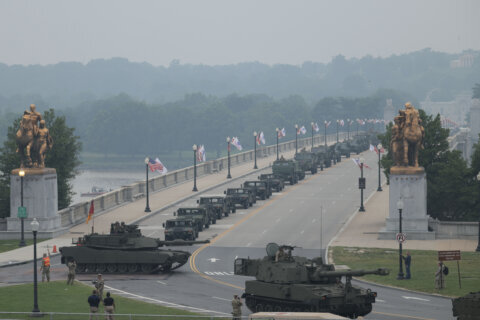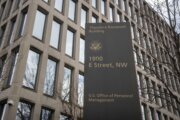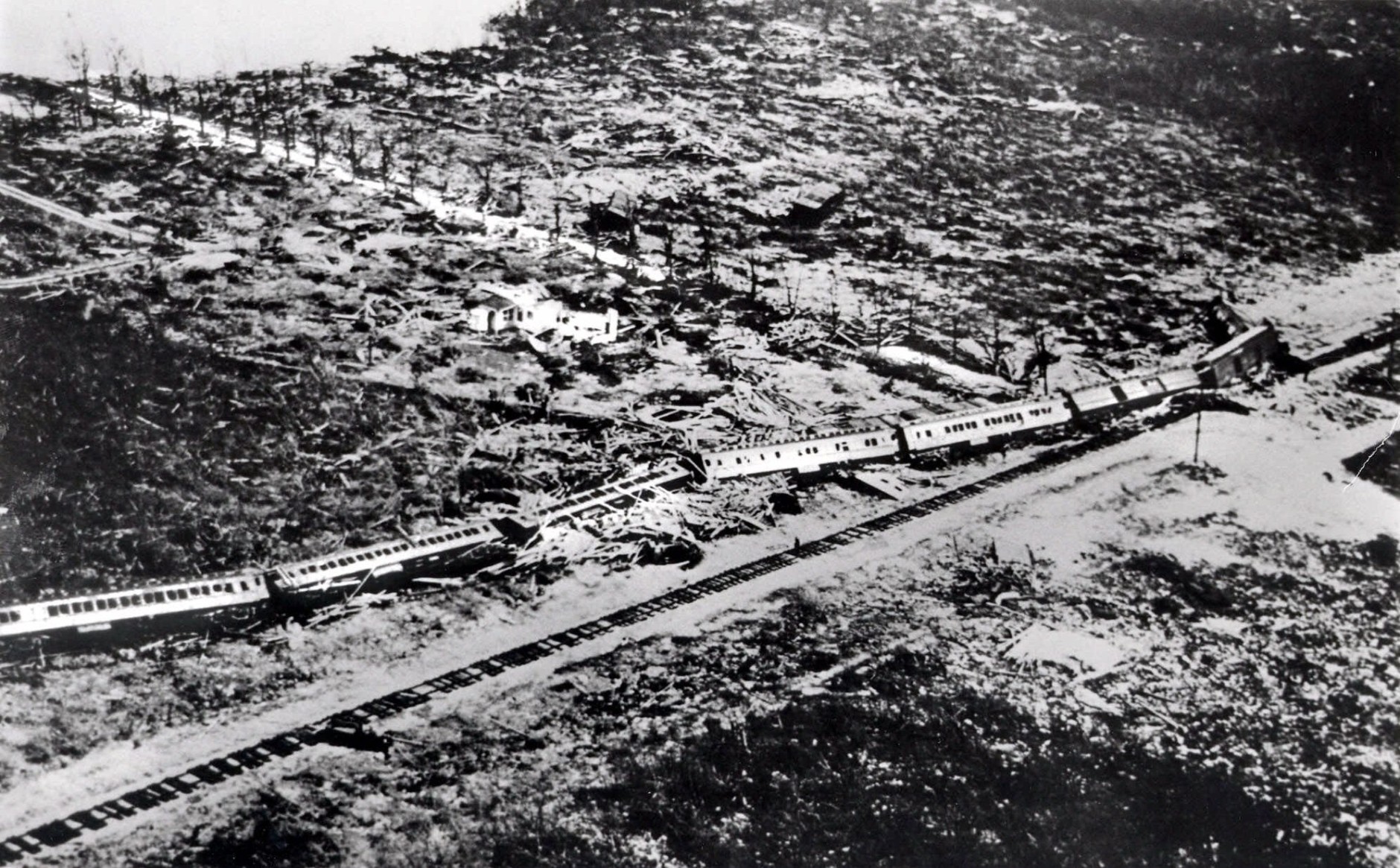
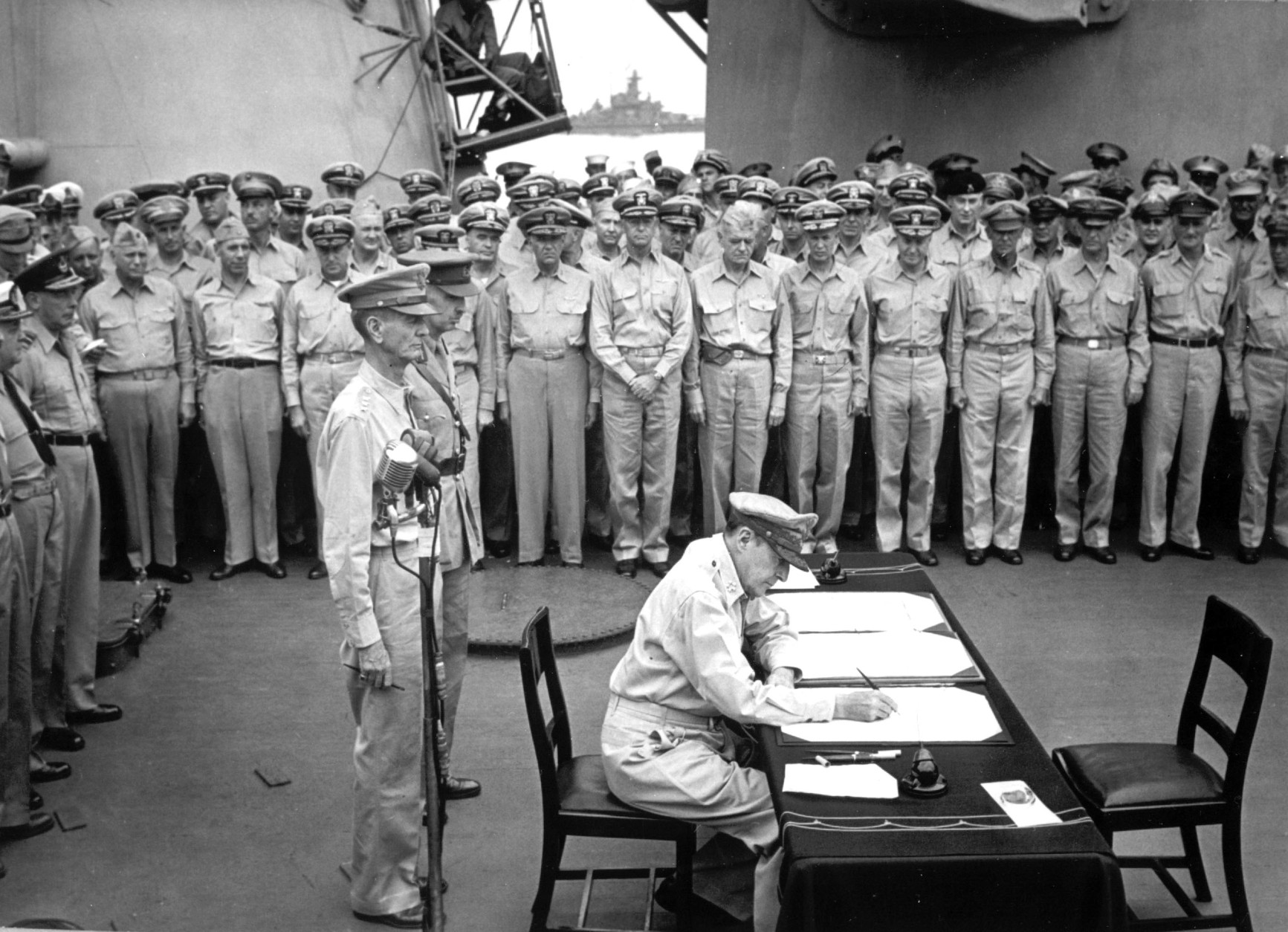
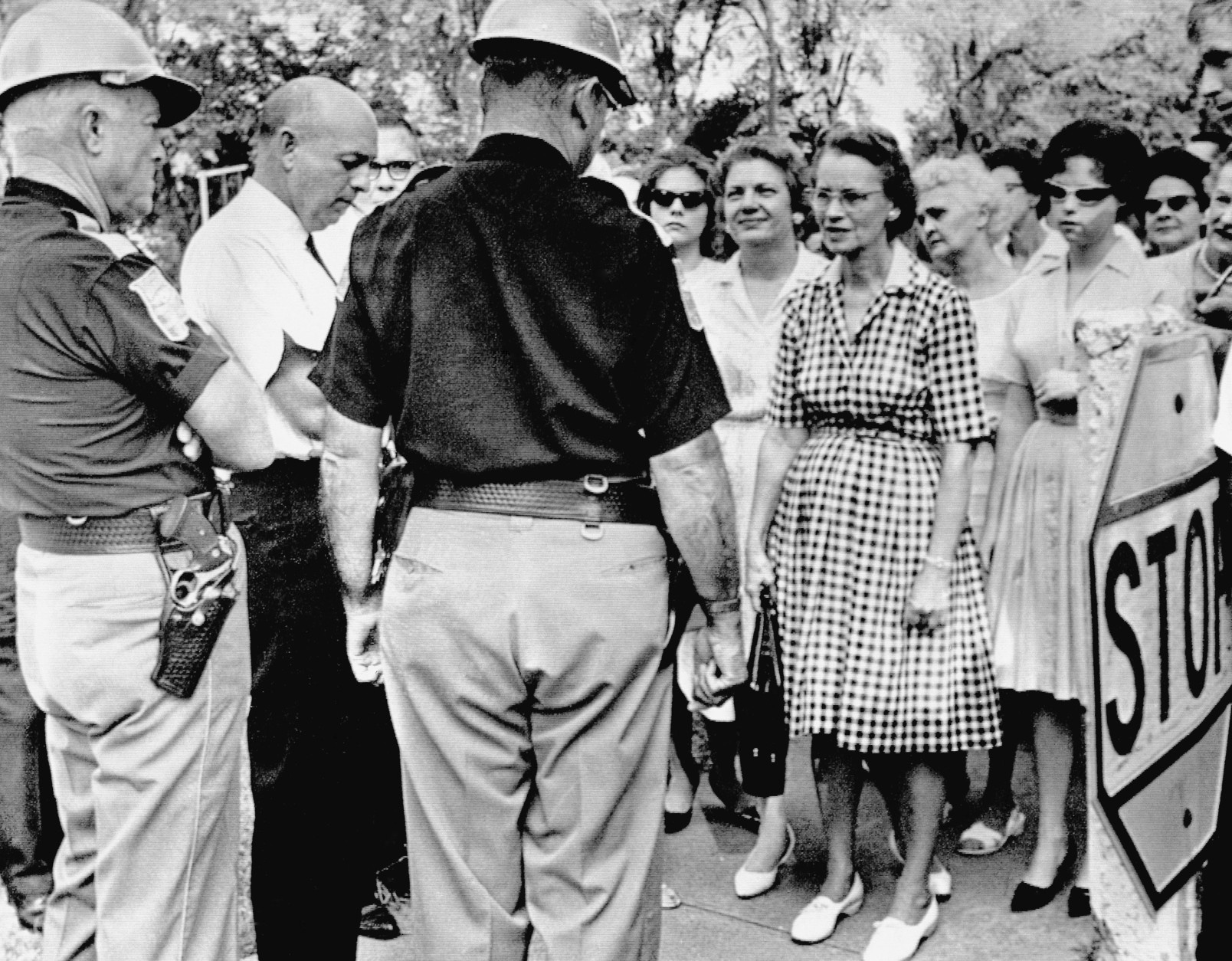
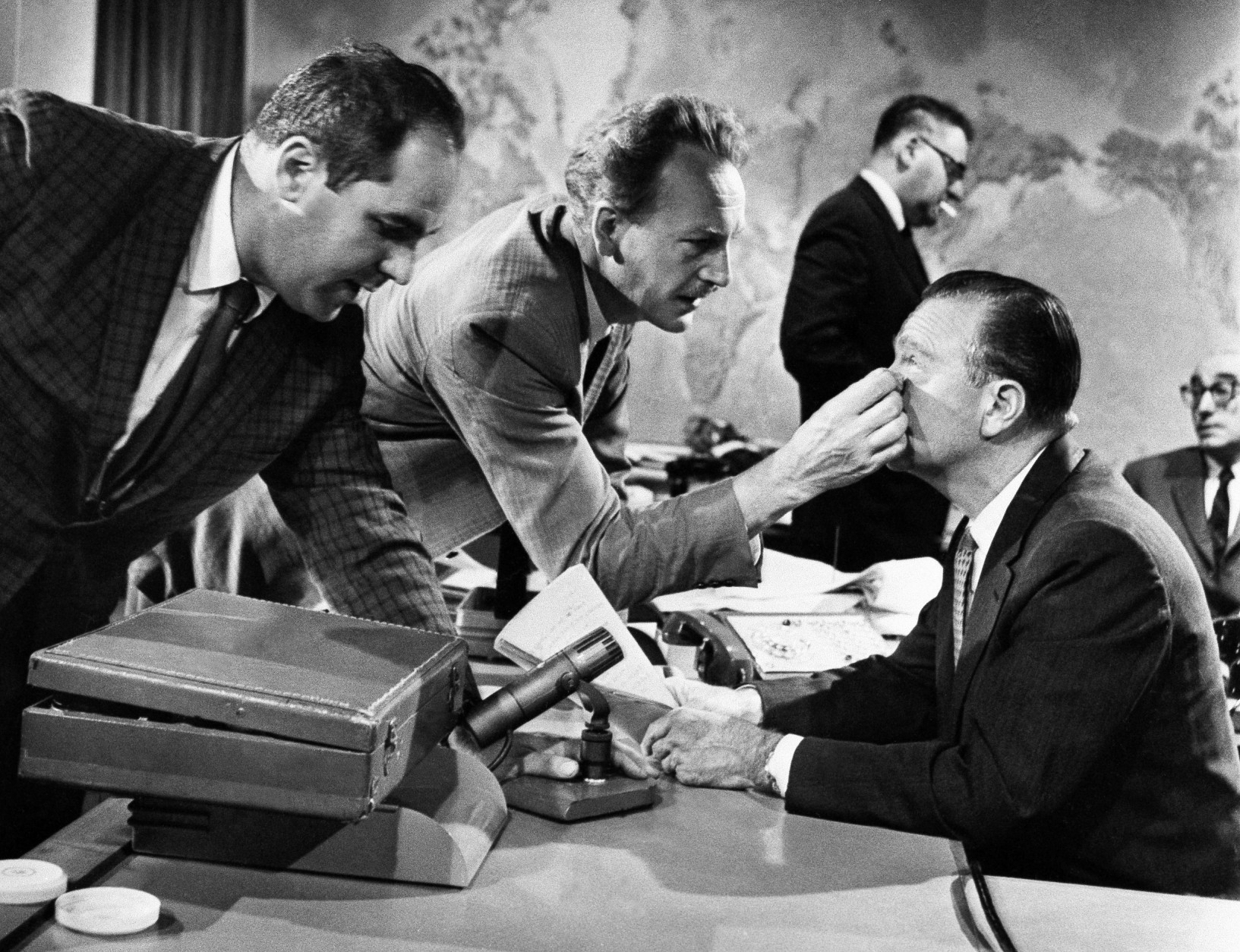
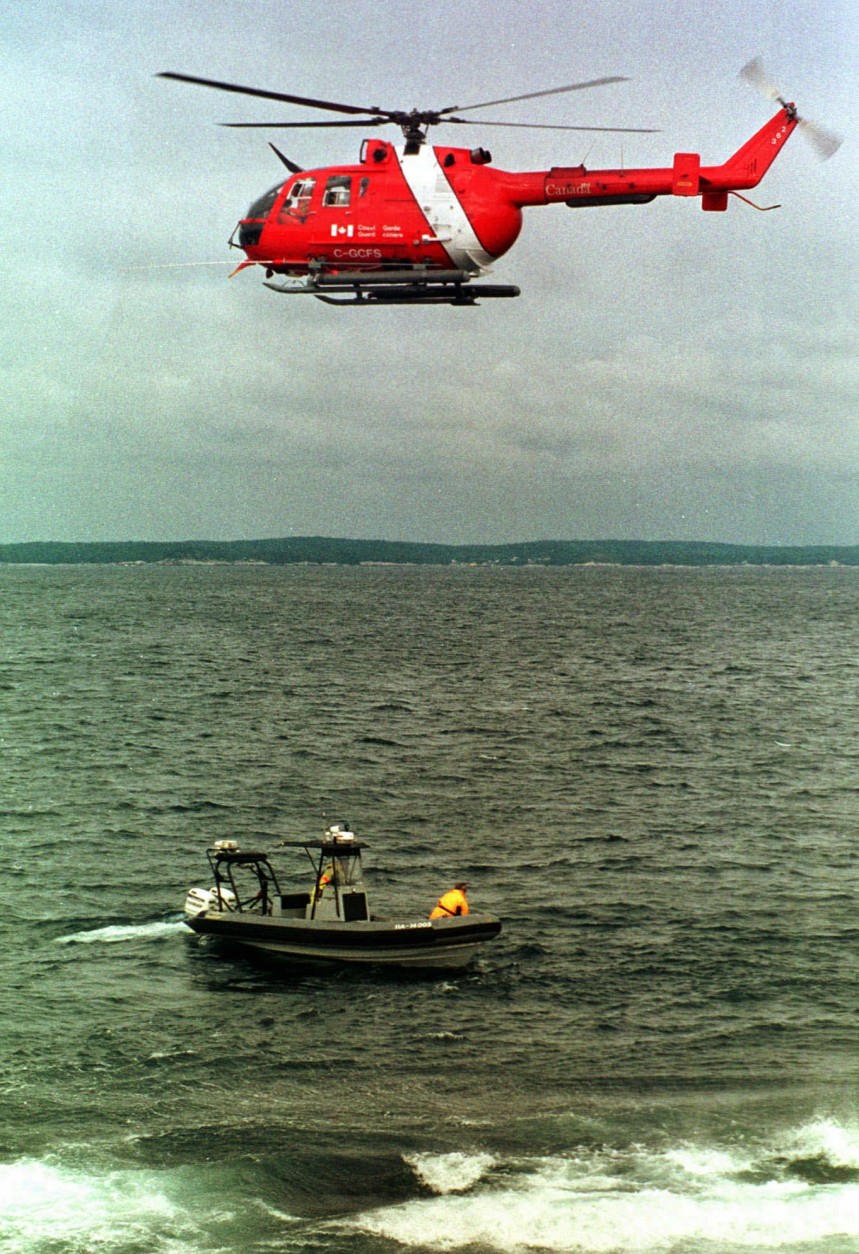
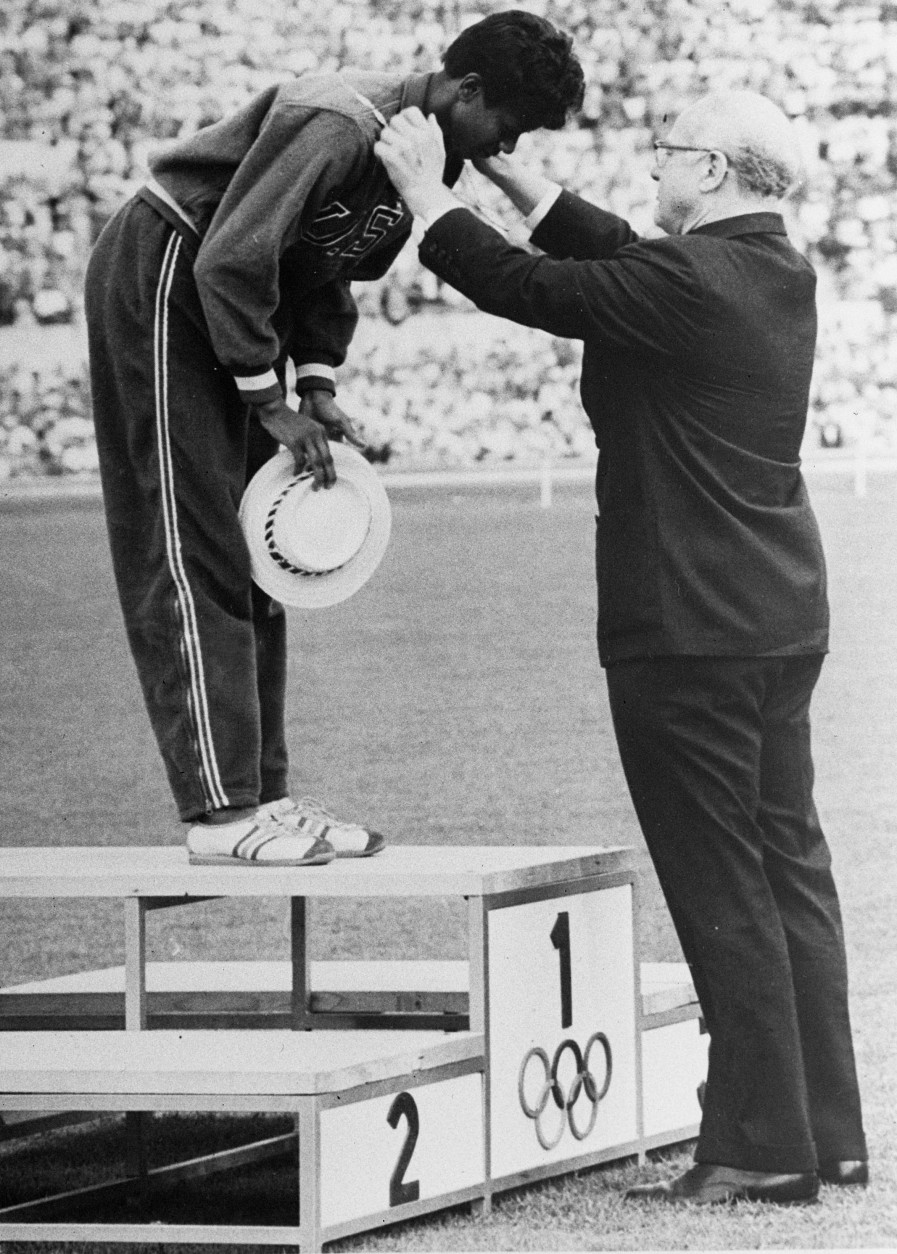
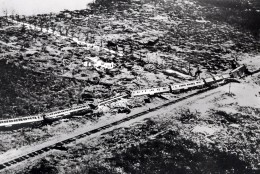
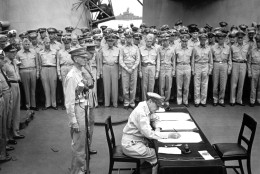
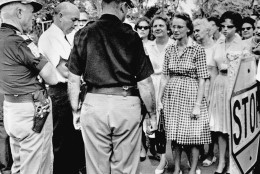
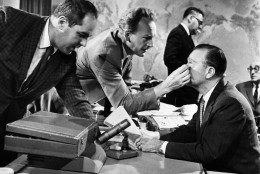

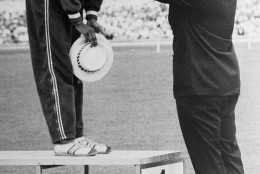
Today is Monday, Sept. 2, the 245th day of 2019. There are 120 days left in the year.
Today’s Highlight in History:
On Sept. 2, 1969, in what some regard as the birth of the Internet, two connected computers at the University of California, Los Angeles, passed test data through a 15-foot cable. The first automatic teller machine (ATM) to utilize magnetic-striped cards was opened to the public at Chemical Bank in New York. (Called a “Docuteller,” it was developed by Donald C. Wetzel.)
On this date:
In 1864, during the Civil War, Union Gen. William T. Sherman’s forces occupied Atlanta.
In 1930, the first nonstop airplane flight from Europe to the U.S. was completed in 37 hours as Capt. Dieudonne Costes and Maurice Bellonte of France arrived in Valley Stream, New York, aboard their Breguet 19 biplane, which bore the symbol of a large question mark.
In 1945, Japan formally surrendered in ceremonies aboard the USS Missouri in Tokyo Bay, ending World War II.
In 1958, President Dwight D. Eisenhower signed the National Defense Education Act, which provided aid to public and private education to promote learning in such fields as math and science.
In 1960, Wilma Rudolph of the United States won the first of her three gold medals at the Rome Summer Olympics as she finished the 100-meter dash in 11 seconds.
In 1963, Alabama Gov. George C. Wallace prevented the integration of Tuskegee High School by encircling the building with state troopers. “The CBS Evening News” with Walter Cronkite was lengthened from 15 to 30 minutes, becoming network television’s first half-hour nightly newscast.
In 1998, a Swissair MD-11 jetliner crashed off Nova Scotia, killing all 229 people aboard.
In 2001, actor Troy Donahue, a one-time teen movie idol, died in Santa Monica, Calif., at age 65.
In 2003, a federal appeals court in San Francisco threw out more than 100 death sentences in Arizona, Montana and Idaho because the inmates had been sent to death row by judges instead of juries.
In 2004, President George W. Bush pledged “a safer world and a more hopeful America” as he accepted his party’s nomination for a second term at the Republican National Convention in New York.
In 2005, a National Guard convoy packed with food, water and medicine rolled into New Orleans four days after Hurricane Katrina. Scorched by criticism about sluggish federal help, President George W. Bush toured the Gulf Coast and met with state and local officials, including New Orleans Mayor Ray Nagin; at one point, Bush praised FEMA Director Michael Brown, telling him, “Brownie, you’re doing a heck of a job.”
In 2013, on her fifth try, U.S. endurance swimmer Diana Nyad became the first person to swim from Cuba to Florida without the help of a shark cage.
Ten years ago: Pfizer agreed to pay a record $2.3 billion settlement for illegal drug promotion. A Taliban suicide bomber attacked officials leaving a mosque in Afghanistan, killing the country’s deputy intelligence chief and 23 others. Gunmen killed 17 people at a drug rehabilitation center in Ciudad Juarez (SEE’-yoo-dahd wahr-EHZ’), Mexico. A magnitude-7.0 earthquake rocked Indonesia, killing dozens of people.
Five years ago: Islamic State group extremists released a video showing the beheading of American journalist Steven Sotloff, and warned President Barack Obama against further U.S. airstrikes on the group. Apple said that hackers had obtained nude photos of actress Jennifer Lawrence and other female celebrities by pilfering images from individual accounts rather than through a broader attack on the company’s services.
One year ago: Sen. John McCain was laid to rest on a grassy hill at the U.S. Naval Academy, after a horse-drawn caisson carrying the senator’s casket led a procession of mourners from the academy’s chapel to its cemetery. A huge fire engulfed Brazil’s 200-year-old National Museum in Rio de Janeiro, as firefighters and museum workers raced to save historical relics.
Copyright © 2026 The Associated Press. All rights reserved. This material may not be published, broadcast, written or redistributed.

